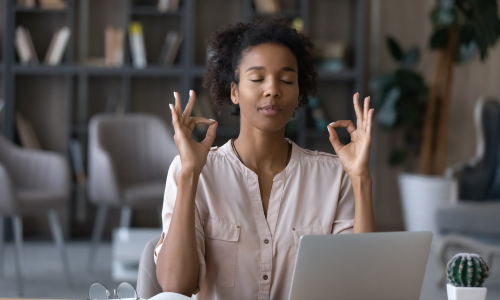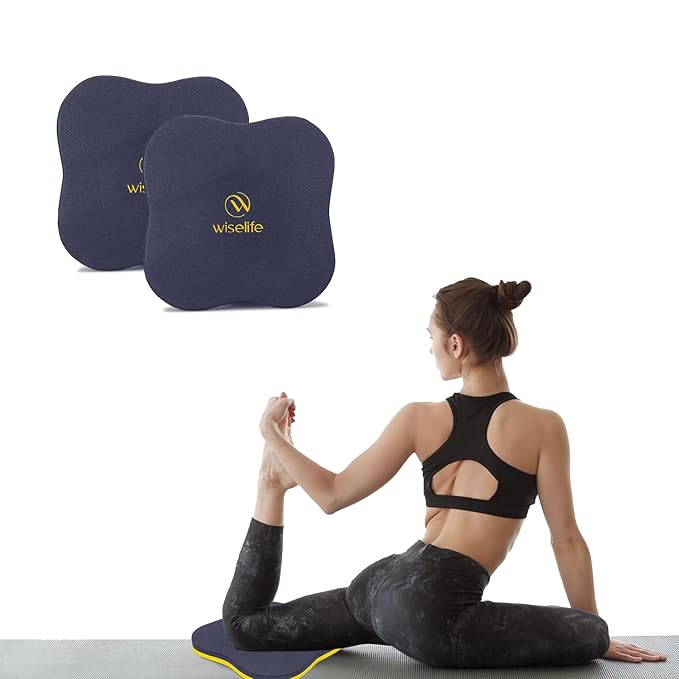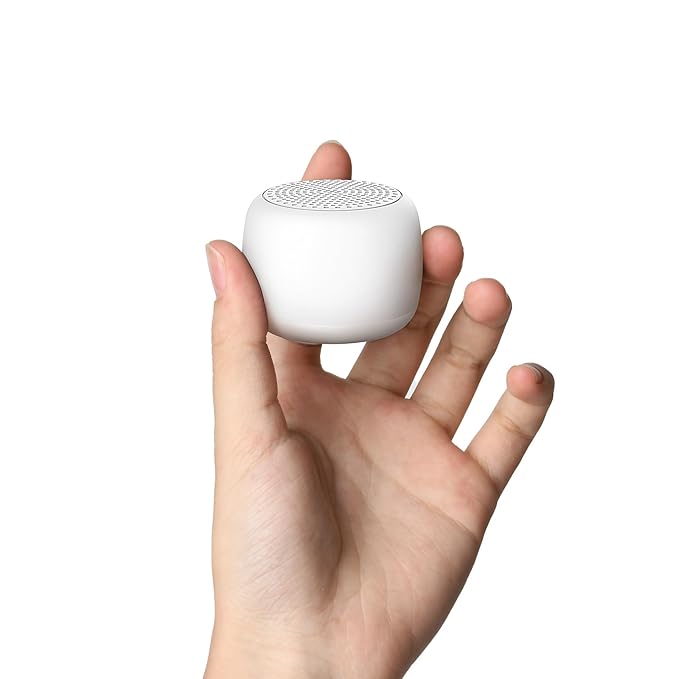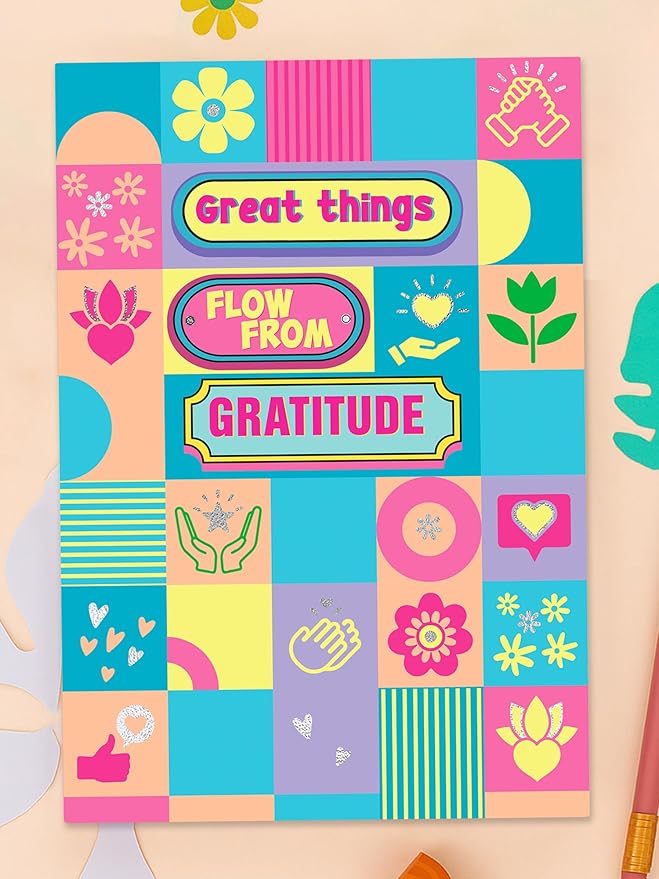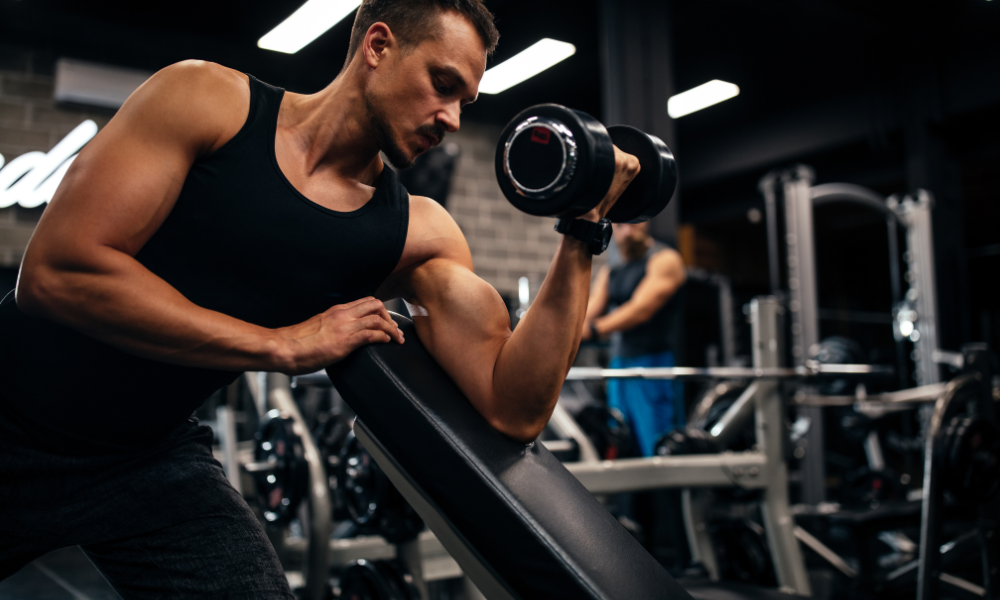5 Daily Habits to Reduce Anxiety Naturally
Anxiety is one of the most common mental health challenges people face today. Whether it’s triggered by work stress, financial worries, personal relationships, or even an overactive mind, anxiety can take a toll on both your physical and emotional well-being. While therapy, counseling, and medication are effective for many, there are also natural approaches you can practice daily to help reduce anxiety levels and regain balance in life.
By cultivating small, consistent habits, you can train your body and mind to handle stress better, build resilience, and create an environment where calmness becomes second nature. In this blog, we’ll explore five daily habits to reduce anxiety naturally and improve overall mental health.
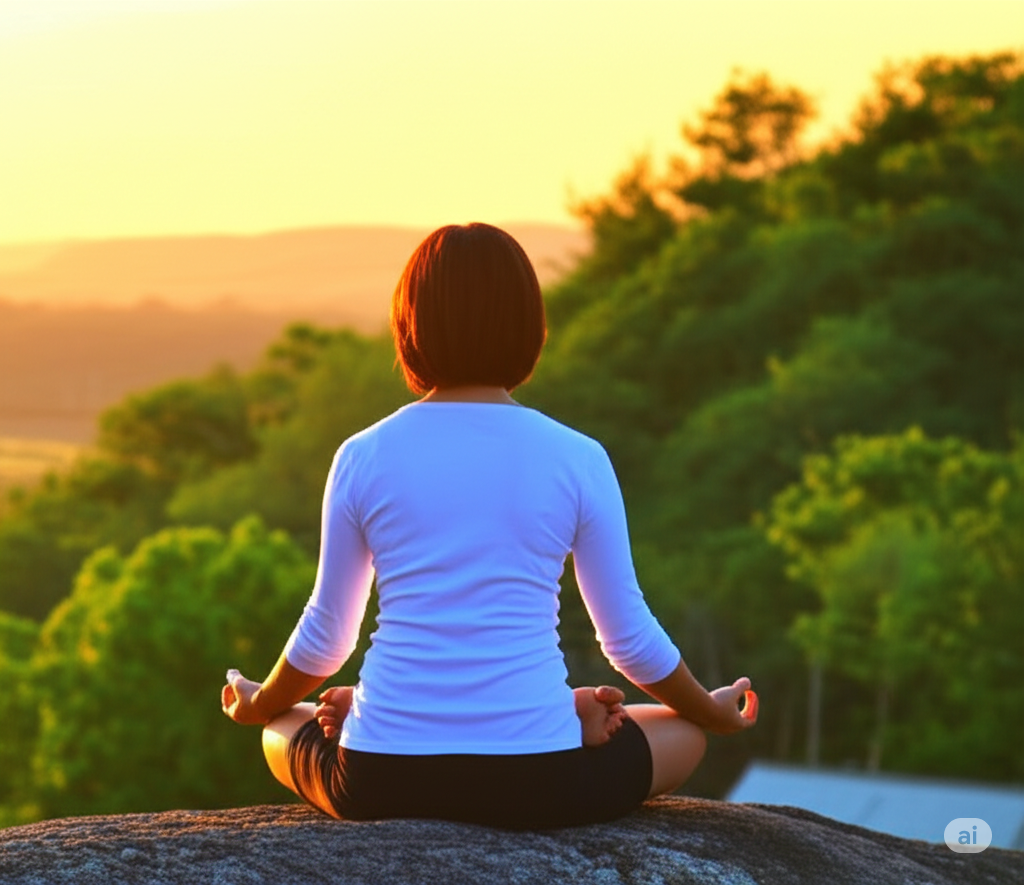
- Practice Mindful Breathing and Meditation
One of the simplest yet most powerful tools for managing anxiety is your breath. When you feel anxious, your breathing becomes shallow and rapid, which signals your body that something is wrong. This creates a cycle where your brain and body reinforce each other’s stress signals. Mindful breathing helps break this loop.
How to practice mindful breathing:
- Set aside 5–10 minutes daily.Sit in a quiet space, close your eyes, and focus on your breath.
- Try the 4-7-8 technique.Inhale for 4 seconds, hold for 7 seconds, and exhale slowly for 8 seconds.
- Observe, don’t control.Notice how your breath feels as it enters and leaves your body.
Research shows that mindfulness meditation lowers cortisol (the stress hormone), increases focus, and promotes relaxation. Starting your day with even five minutes of mindful breathing can make a huge difference in how you handle stressful situations.
Recommended Tools to Support Your Anxiety-Free Lifestyle Meditation Cushion
- Move Your Body with Daily Exercise
Physical activity is a natural anxiety reliever. Exercise releases endorphins—the body’s “feel-good” hormones—that improve mood and reduce stress. Regular movement also helps regulate sleep patterns, improves confidence, and lowers tension in the body.
Best types of exercise for reducing anxiety:
- Yoga:Combines gentle stretches with breathing techniques.
- Walking in nature:A 20–30 minute walk outdoors calms the nervous system.
- Cardio exercises:Running, cycling, or dancing improves heart health and reduces restlessness.
- Strength training:Builds resilience and releases pent-up energy.
The key is consistency. You don’t need hours at the gym—just 30 minutes of moderate activity daily is enough to notice long-term improvements in anxiety and overall mood.
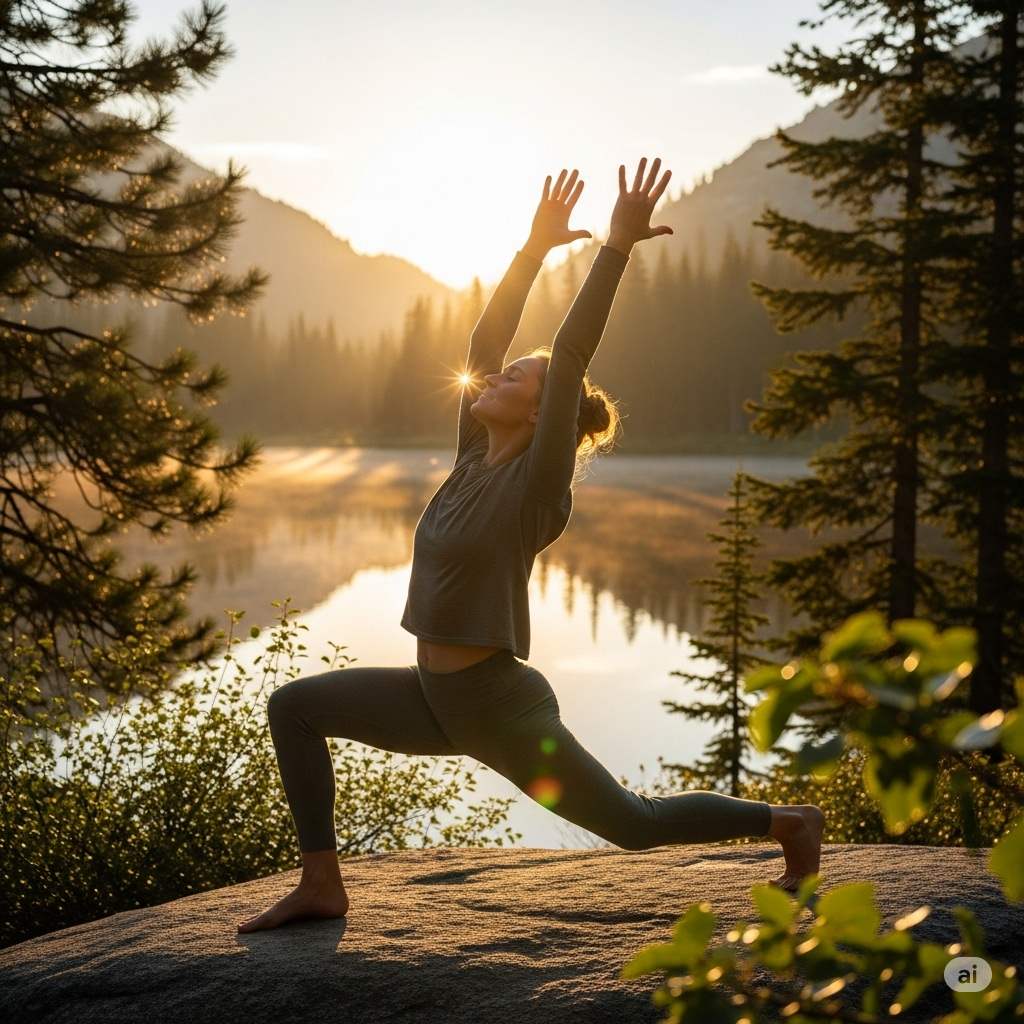
- Nourish Your Body with a Balanced Diet
What you eat has a direct impact on your mental health. Certain foods can heighten anxiety, while others help keep it under control. For example, caffeine and processed sugar may trigger nervousness or panic attacks, while whole foods rich in nutrients can support brain function and emotional balance.
Foods that help reduce anxiety naturally:
- Leafy greens and vegetables:Rich in magnesium, which calms the nervous system.
- Omega-3 fatty acids (salmon, walnuts, flaxseeds):Improve brain health and reduce inflammation.
- Herbal teas (chamomile, lavender, green tea):Promote relaxation.
- Probiotic-rich foods (yogurt, kefir, sauerkraut):Support gut health, which is linked to mood regulation.
- Dark chocolate (in moderation):Boosts serotonin levels.
Staying hydrated is equally important. Dehydration can increase irritability and fatigue, making anxiety worse. Aim to drink enough water throughout the day to support optimal brain function.
- Create a Healthy Sleep Routine
Anxiety and poor sleep often go hand in hand. Lack of sleep can trigger anxiety, and anxiety can keep you from falling asleep—a frustrating cycle. Prioritizing good sleep hygiene is essential for calming your mind and giving your body the rest it needs.
Tips for better sleep:
- Stick to a consistent schedule.Go to bed and wake up at the same time every day.
- Create a calming bedtime routine.Read a book, take a warm shower, or listen to soft music before bed.
- Limit screen time.Avoid phones, laptops, or TVs at least 1 hour before bedtime. The blue light disrupts melatonin production.
- Make your bedroom restful.Keep it cool, dark, and comfortable.
Getting 7–9 hours of quality sleep improves mood stability, reduces overthinking, and makes you more resilient to daily stressors.
Recommended Tools to Support Your Anxiety-Free Lifestyle White Noise Machine
- Practice Gratitude and Journaling
Our thoughts play a powerful role in shaping our emotions. Anxiety often stems from worrying about the future or ruminating on past events. A gratitude practice helps redirect your attention toward positive aspects of life, grounding you in the present moment.
Journaling practices for anxiety relief:
- Gratitude journaling:Write down 3–5 things you’re thankful for every day.
- Brain dump journaling:Before bed, write out your worries to clear your mind.
- Affirmations:Write positive self-statements to counter negative thinking.
This simple practice helps rewire the brain to focus on positivity, reduces mental clutter, and creates a sense of calm. Studies show that people who journal regularly experience reduced anxiety and improved emotional well-being.
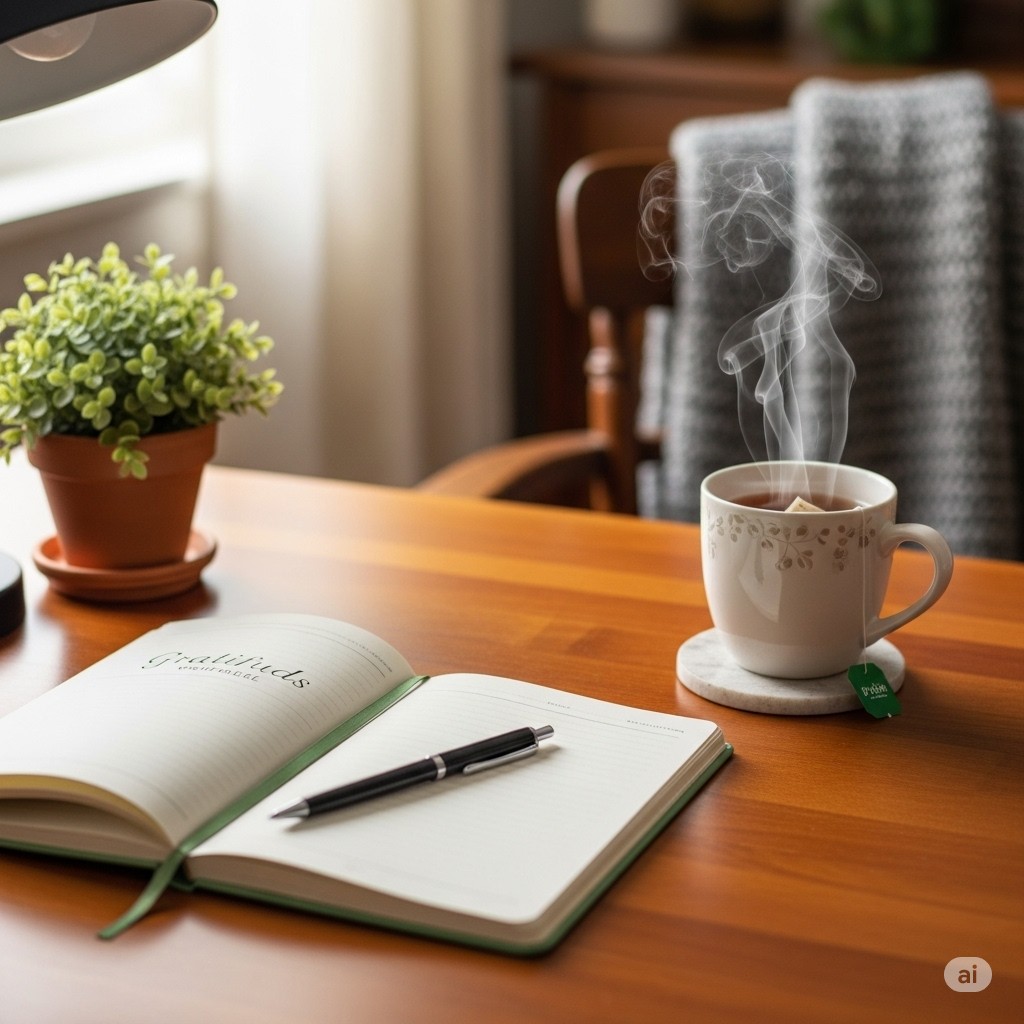
Additional Tips to Support Anxiety Relief Naturally
While the five habits above form a strong foundation, here are some extra practices that can complement your daily routine:
- Limit caffeine and alcohol:Both can trigger or worsen anxiety symptoms.
- Spend time in nature:Fresh air, sunlight, and greenery help reduce stress.
- Stay socially connected:Talk to a friend, join a support group, or simply share your feelings with loved ones.
- Practice self-compassion:Be gentle with yourself instead of being overly critical.
Recommended Tools to Support Your Anxiety-Free Lifestyle DOODLE Daily 5 Minute Gratitude Journal
Anxiety may feel overwhelming, but small, consistent lifestyle changes can have a significant impact on your mental health. By practicing mindful breathing, exercising regularly, nourishing your body with healthy foods, prioritizing sleep, and journaling your thoughts, you give yourself natural tools to cope with daily stress.
Remember, reducing anxiety naturally is not about eliminating stress entirely—it’s about managing it in healthy ways so you can live a calmer, more fulfilling life. Start with just one habit today and build from there. Over time, you’ll notice that your mind feels clearer, your body feels lighter, and your anxiety becomes easier to handle.
If your anxiety feels severe or persistent, don’t hesitate to seek professional support. Combining natural daily habits with therapy or medical guidance can be the most effective approach to long-term healing.
